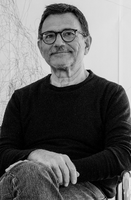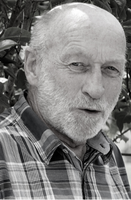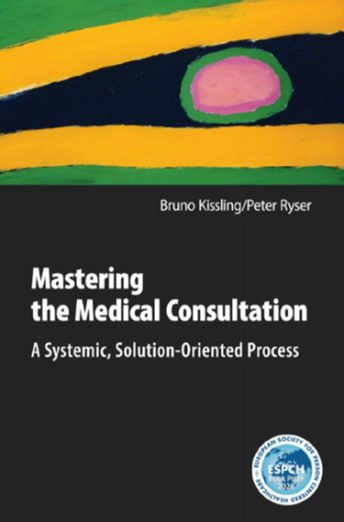Relationship and trust, prerequisites of medical consultation
By
Dr. Bruno Kissling, family doctor, former Teaching Doctor
Peter Ryser, specialist in Systemic Counselling, Teacher and Supervisor in Solution-Oriented Medicine


Anna Stavdal’s article “From the President: On Family Doctors’ Vaccine Dilemmas” addresses the dilemma of what happens when a patient rejects the Covid vaccination despite the doctor’s science-based recommendation, and despite the resulting risk of serious consequences, not only for the patient’s health but also for the health of others.
Anna Stavdal invites family doctors to reflect on how we can cope with such dilemmas.
With its far-reaching uncertainties Covid reveals and amplifies pre-existing problems on all, relational, medical, epidemiological and societal issues and the complex interactions between them on their micro, meso and macro levels – going far beyond Covid.
Dilemmas are subliminally present in each medical encounter and they affect both, the doctor and the patient. This is true because of the complexity, uncertainty and ambivalence. These three factors are at work in all the patient’s diseases / illnesses and healing processes. Dilemmas are also inherent to the scientific medical knowledge and therefore to all medical interventions from analysis to diagnosis, therapy and prevention. And let’s not forget, they are present in each interaction between doctor and patient and influence their relationship and trust. To be aware of this circumstance is crucial for each medical decision-making process.
This awareness allows the doctor to have a self critical attitude and to meet the patient on an equal footing - like two experts: the patient being the expert of their unique disease / illness, their psycho-socio-economical context, targets, values, beliefs, experiences and resources. The doctor as an expert of medical knowledge, their professional experiences and, not to forget, personal convictions. This mutual respect leads to a sustainable relationship, to trust and to a feeling of safety. Relationship and trust are recognised as the foundation of any collaboration. A reliable collaboration finally leads to mutual understanding and the clarification of different views and interests. It leads to good solutions which are appropriate and acceptable for the patient and the doctor and to more satisfaction for both. This makes dilemmas easier to bear for both, doctor and patient.
We have been dealing with precisely all these issues around the highly sensitive interactive encounter of doctor and patient for over 30 years. Bruno as a family doctor and Peter as a specialist in systemic, solution-oriented counselling and as a supervisor of family doctors.
Together we have summarized all our experiences in the book “Mastering the Medical Consultation”. Using practical examples, we discuss in seven steps, how the doctor can structure the consultation and how they can communicate with the patient. We reflect on why these approaches are useful. We show, how the doctor can build up and maintain a creative relationship. How they can ask questions which lead to the required clinical answers plus have the potential to make the patient widen their perspective on their problem. We reflect on how, together, they can create a common reality out of the patient’s and doctor’s realities. How they can reveal, what the patient really wants from the encounter with the doctor. How they can negotiate a reliable cooperation for an open-ended shared decision-making process. How they can deal with each other when there is a disagreement. And finally, how they decide on the next steps of an ongoing therapeutic process and how they conclude a treatment. We also address how they can terminate their relationship when they cannot find a constructive level at all. We end with questions which help the doctor to reflect on the consultation on a medical but also interpersonal and intrapersonal level. The book also contains chapters on topics which are part of all steps of the consultation, such as active listening, physical proximity and contact, ambivalence, discussing therapeutic options, dealing with errors…
Unfortunately, all these basic communication skills and organizational competences are not or only insufficiently taught at most medical schools. In our longstanding cooperation with experienced doctors, we have learned that there is a real need for repeated reflection on their own professional attitude and for training of their communication skills. Preferably in supervised peer group meetings. The participants share positive and negative clinical examples they experienced. They discuss which interactions have been helpful and which have not. Beyond the medical topics they can also discuss their emotional experiences. As a further benefit these peer-group encounters help the participants to look after their own personal wellbeing.

We all agree: We can only be good doctors, when we also care for ourselves.
‣ Prefaces by Iona Heath and Susanne
‣ Rabady
Free Association Books, London, 2021
‣ Book Prize of the European Society for Patient-Centered Healthcare ESPCH 2020
‣ Original in German: «Die ärztliche Konsultation – systemisch-lösungsorientiert», Vandenhoeck & Ruprecht, 2019
Dr. Bruno Kissling, family doctor, former Teaching Doctor
Peter Ryser, specialist in Systemic Counselling, Teacher and Supervisor in Solution-Oriented Medicine